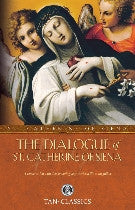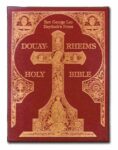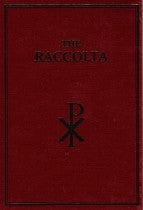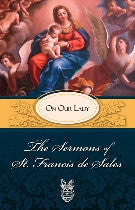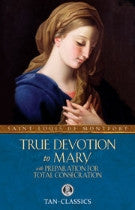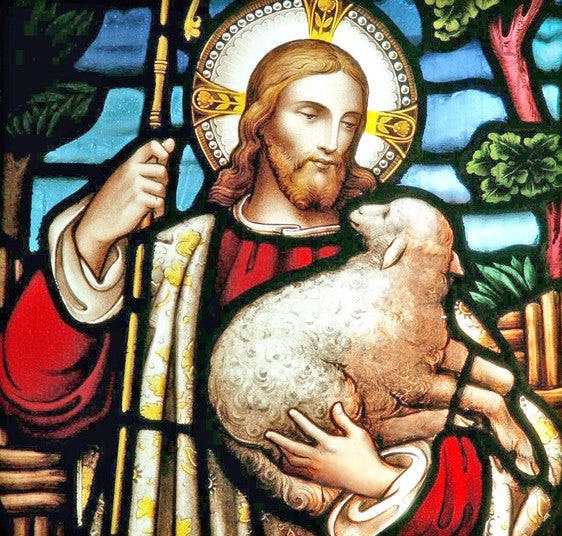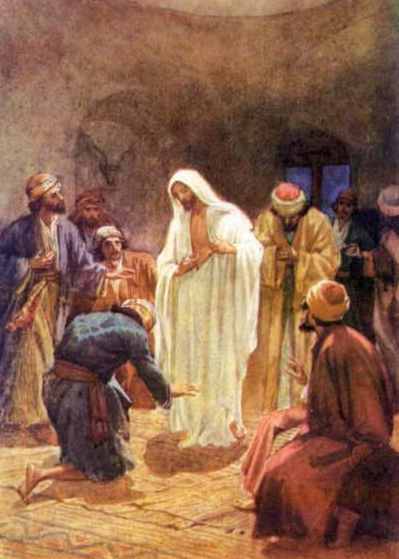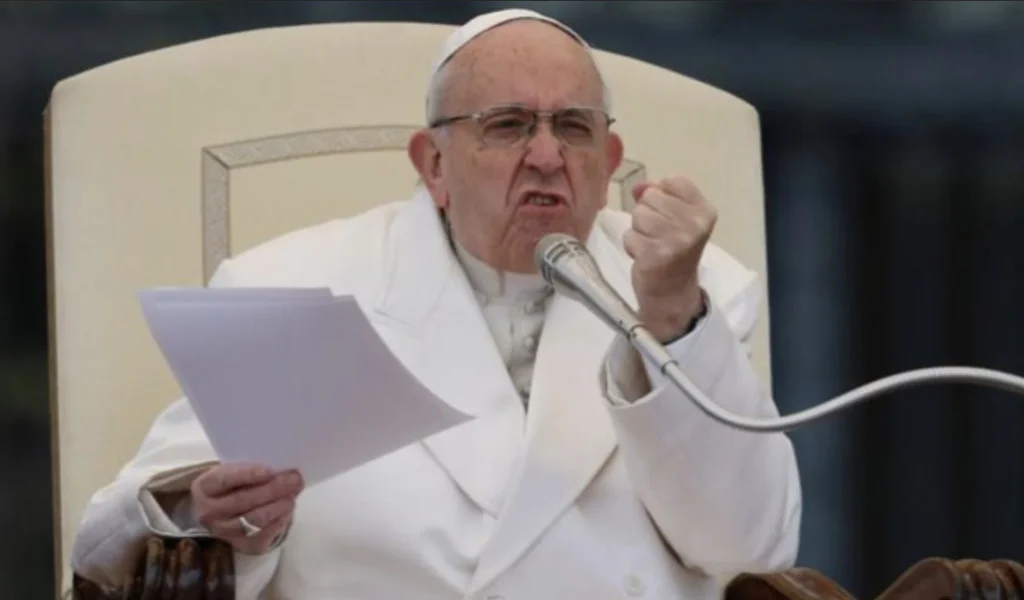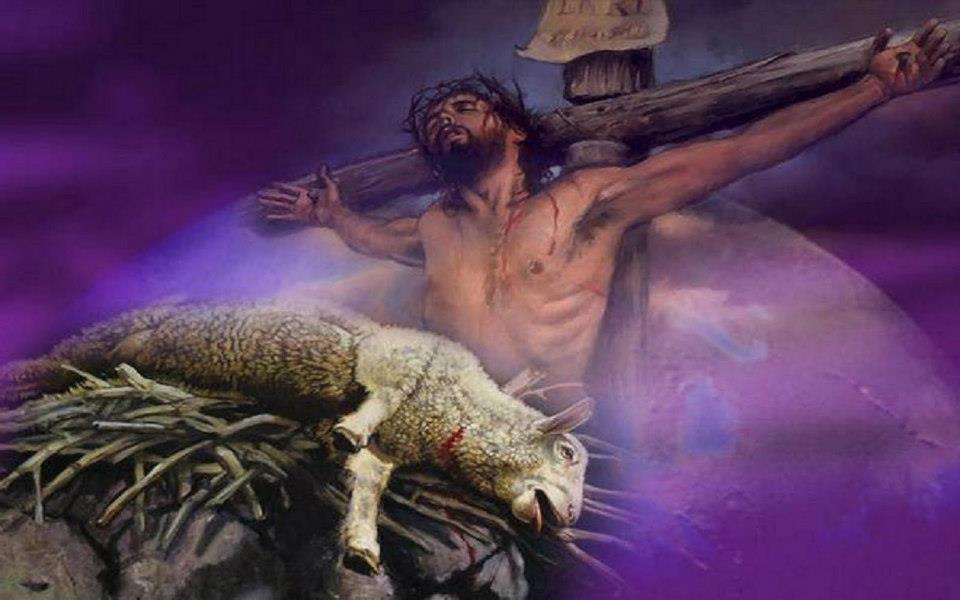Useful Links
✠
Low Mass
✠
Rubrics and Commentary
While waiting for Mass to start the worshipper should diligently prepare by choosing prayers from the Preparation for Mass.
Carillon des Heures : Notre Dame Cathedral, Paris
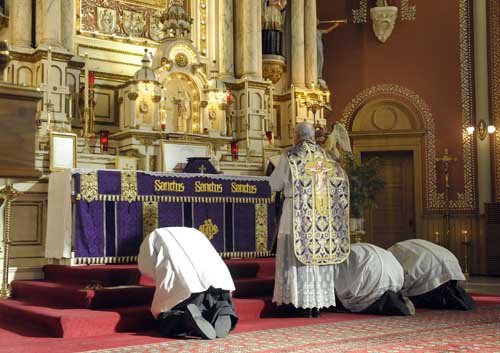
MASS OF THE CATECHUMENS
During which the worshipper should prepare for the Mass of the Faithful by praying all the devotions with the Celebrant and by reflecting on the Scriptures which are read as part of the liturgy of the day.
The Priest, when he has made ready, approaches the Holy Table of the Altar, and after making the accustomed reverence, proceeds to say the following preparatory prayers, which same are said by the Priest standing on the floor in front of the Altar steps. Nothing is said at the Altar or on the steps thereof until the Mass itself is actually begun.
PREPARATORY PRAYERS OF THE CELEBRANT
prayers at the foot of the altar
First the Priest makes the Sign of the Cross, saying:
In nómine Patris, ✠ et Fílii, et Spíritus Sancti. Amen.
In the name of the Father, ✠ and of the Son, and of the Holy Ghost. Amen.
In Masses of the Dead and of the Season of Passiontide the following Psalm is omitted, in which case the Antiphon only is said.
The Antiphon
℣. Introíbo ad altáre Dei.
℟. Ad Deum qui lætíficat juventútem meam.
℣. I will go in unto the altar of God.
℟. Unto God who giveth joy to my youth
Psalm 42 : Judica me, Deus
Concerning the Altar as the Mercy Seat of God
The Priest’s pleading of the Cause of God’s People
℣. Júdica me, Deus, et discérne causam meam de gente non sancta, * ab hómine iníquo, et dolóso érue me.
℟. Quia tu es, Deus, fortitúdo mea: * quare me repulísti? et quare tristis incédo, dum afflígit me inimícus?
℟. For thou art the God of my strength; * why hast thou put me from thee? and why go I so heavily, whilst the enemy oppresseth me?
Petition to approach God’s Altar devoutly
℣. Emítte lucem tuam et veritátem tuam: * ipsa me deduxérunt, et adduxérunt in montem sanctum tuum, et in tabernácula tua.
℟. Et introíbo ad altáre Dei: * ad Deum, qui lætíficat juventútem meam.
℟. Then will I go in unto the altar of God, * even unto God that giveth joy to my youth.
Act of Confidence in God
℣. Confitébor tibi in cíthara, Deus, Deus meus: * quare tristis es, ánima mea? et quare contúrbas me?
℟. Spera in Deo, quóniam adhuc confitébor illi: * salutáre vultus mei, et Deus meus.
℟. O put thy trust in God, for I will yet give him thanks, * which is the help of my countenance, and my God.
Act of Adoration of the Triune God
℣. Glória Patri, et Fílio, * et Spirítui Sancto.
℟. Sicut erat in princípio, et nunc, et semper, * et in sǽcula sæculórum. Amen.
℣. Glory be to the Father, and to the Son, * and to the Holy Ghost.
℟. As it was in the beginning, is now, and ever shall be, * world without end. Amen.
The Priest then repeats the Antiphon:
℣. Introíbo ad altáre Dei.
℟. Ad Deum qui lætíficat juventútem meam.
℟. Unto God who giveth joy to my youth
Acknowledgment of our own unworthiness
℣. Adjutórium nostrum ✠ in nómine Dómini.
℟. Qui fecit cælum et terram.
℣. Our help ✠ is in the Name of the Lord.
℟. Who hath made heaven and earth.
The General Confession
The Priest then makes a profound reverence and says the General Confession:
Confíteor Deo omnipoténti, beátæ Maríæ semper Vírgini, beáto Michaéli Archángelo, beáto Joánni Baptístæ, * sanctis Apóstolis Petro et Paulo, ómnibus Sanctis, et vobis fratres, * quia peccávi nimis cogitatióne, verbo et ópere:
Here he strikes his breast thrice:
mea culpa, mea culpa, mea máxima culpa. * Ideo precor beátam Maríam semper Vírginem, beátum Michaélem Archángelum, beátum Joánnem Baptístam, * sanctos Apóstolos Petrum et Paulum, omnes Sanctos, et vos fratres, * oráre pro me ad Dóminum Deum nostrum.
The Ministers ask God to accept the Priest’s Confession, as follows:
Misereátur tui omnípotens Deus, et, dimíssis peccátis tuis, perdúcat te ad vitam ætérnam.
℟. Amen.
May Almighty God have mercy upon thee, forgive thee thy sins, and bring thee to everlasting life.
℟. Amen.
Then the Ministers repeat the General Confession (and since sin is an offence not only against God but against the Mystical Body of Christ as well, confession is made to representatives thereof as well as to God) as follows:
Confíteor Deo omnipoténti, beátæ Maríæ semper Vírgini, beáto Michaéli Archángelo, beáto Joánni Baptístæ, * sanctis Apóstolis Petro et Paulo, ómnibus Sanctis, et tibi pater, * quia peccávi nimis cogitatióne, verbo et ópere:
Here the Ministers and People strike their breast thrice:
mea culpa, mea culpa, mea máxima culpa. * Ideo precor beátam Maríam semper Vírginem, beátum Michaélem Archángelum, beátum Joánnem Baptístam, * sanctos Apóstolos Petrum et Paulum, omnes Sanctos, et te pater, * oráre pro me ad Dóminum Deum nostrum.
through my fault, through my own fault, through my own most grievous fault. * Therefore I beseech Blessed Mary Ever-Virgin, blessed Michael the Archangel, blessed John the Baptist, * the holy Apostles Peter and Paul, all the Saints, and you Father, * to pray for me to the Lord our God.
The Priest asks God to accept our Confession, as follows:
Misereátur vestri omnípotens Deus, et dimíssis peccátis vestris, perdúcat vos ad vitam ætérnam.
℟. Amen.
May almighty God have mercy upon you, forgive you your sins, and bring you to everlasting life.
℟. Amen.
He prays for full absolution.
Indulgéntiam, ✠ absolutiónem, et remissiónem peccatórum nostrórum tríbuat nobis omnípotens et miséricors Dóminus.
℟. Amen.
May the Almighty and merciful Lord grant us pardon, ✠ absolution, and remission of our sins.
℟. Amen.
Making a slight reverence the Priest then asks for spiritual renewal.
℣. Deus, tu convérsus vivificábis nos.
℟. Et plebs tua lætábitur in te.
℣. Wilt thou not turn again, and quicken us, O God?
℟. And thy people shall rejoice in thee.
℣. Osténde nobis, Dómine, misericórdiam tuam.
℟. Et salutáre tuum da nobis.
℣. O Lord, shew thy mercy upon us.
℟. And grant us thy salvation.
℣. Dómine, exáudi oratiónem meam.
℟. Et clamor meus ad te véniat.
℣. O Lord, hear my prayer.
℟. And let my cry come unto thee.
The First Salutation
Which marks the beginning of the Mass of the Catechumens, or the Preparation for the Sacrifice
℣. Dóminus vobíscum.
℟. Et cum spíritu tuo.
℣. The Lord be with you.
℟. And with thy spirit.
First extending, then joining his hands, the Priest says audibly Oremus (Let us Pray). The Priest ascends the steps to the Altar, saying privately the following prayer:
Aufer a nobis, quǽsumus, Dómine, iniquitátes nostras: ut ad Sancta sanctórum puris mereámur méntibus introíre. Per Christum Dóminum nostrum. Amen.
Put away our iniquities far from us, O Lord, we beseech thee, that with pure minds we may be worthy to enter into the Holy of holies. Through Christ our Lord. Amen.
Since the tombs of the Martyrs in the Catacombs were the first immovable Altars, the Church soon began to express her veneration of their tortured bodies, which had been sacrificed for Christ, in prayers such as the following.
The Priest kisses the altar-stone containing the sacred Relicks of the Martyrs.
Orámus te, Dómine, per mérita Sanctórum tuórum, quorum relíquiæ hic sunt, et ómnium Sanctórum: ut indulgére dignéris ómnia peccáta mea. Amen.
We beseech thee, O Lord, by the merits of thy saints, whose relicks are here, and of all thy saints, that it may please thee to forgive me all my sins. Amen.
THE INTROIT
Being the First Variable Part of the Mass
The Priest now goes to the Epistle corner of the Altar and, making the Sign of the Cross, reads the Introit. This opening anthem furnishes the keynote (see proper Mass for the day), and the worshipper should reflect thereon, so as to enter into the Church’s mind in her use thereof.
THE OPENING LITANY OR GENERAL SUPPLICATION
Kyrie Eleison
The Priest then returns to the middle of the Altar and recites the nine supplications to the Father (Kyrie), to the Son (Christe), and to the Holy Ghost (Kyrie).
℣. Kyrie, eléison.
℟. Kyrie, eléison.
℣. Kyrie, eléison.
℣. Lord, have mercy upon us.
℟. Lord, have mercy upon us.
℣. Lord, have mercy upon us.
℣. Christe, eléison.
℟. Christe, eléison.
℣. Christe, eléison.
℣. Christ, have mercy upon us.
℟. Christ, have mercy upon us.
℣. Christ, have mercy upon us.
℣. Kyrie, eléison.
℟. Kyrie, eléison.
℣. Kyrie, eléison.
℣. Lord, have mercy upon us.
℟. Lord, have mercy upon us.
℣. Lord, have mercy upon us.
THE DOXOLOGY TO THE LITANY
Gloria in Excelsis
In Masses of Feasts and in Eastertide, and on Sundays outside Advent, Shrovetide and Lent, the Gloria in Excelsis is now said. It comprises a paraphrase of the Kyrie combined with a paraphrase of the Song of the Angels which announced the Nativity of our Lord.
Standing in the middle of the Altar, the Celebrant bows his head and intones the Gloria in Excelsis. All bow their head at the words in italics.
Praise to the Father for the gift of his Son
Gloria in excélsis Deo. Et in terra pax homínibus bonæ voluntátis. Laudámus te. Benedícimus te. Adorámus te. Glorificámus te. Grátias ágimus tibi propter magnam glóriam tuam. Dómine Deus, Rex cæléstis, Deus Pater omnípotens.
Glory be to God in the highest. And in earth peace to men of good will. We praise thee. We bless thee. We worship thee. We glorify thee. We give thanks to thee for thy great glory. O Lord God, heavenly King, God the Father Almighty.
Supplication to the Son our Sacrifice
Dómine Fili unigénite, Jesu Christe. Dómine Deus, Agnus Dei, Fílius Patris. Qui tollis peccáta mundi, miserére nobis. Qui tollis peccáta mundi, súscipe deprecatiónem nostram. Qui sedes ad déxteram Patris, miserére nobis.
O Lord God, the only begotten Son, Jesu Christ. O Lord God, Lamb of God, Son of the Father, that takest away the sins of the world, have mercy upon us. Thou that takest away the sins of the world, receive our prayer. Thou that sittest at the right hand of God the Father, have mercy upon us.
Act of faith in the oneness of the Son and the Spirit with the Father
Quóniam tu solus Sanctus. Tu solus Dóminus. Tu solus Altíssimus, Jesu Christe. Cum Sancto Spíritu ✠ in glória Dei Patris. Amen.
For thou alone art holy, thou only art the Lord. Thou only, O Jesu Christ, with the Holy Ghost, art most high ✠ in the glory of God the Father. Amen.
COLLECTS OF THE DAY
Being the Second Variable Part of the Mass
Since ancient times each Mass has had three special Prayers, the Collect, the Secret and the Postcommunion. These are the principle variable Prayers of the Mass. See proper Mass for the day.
The Second Salutation
Which introduces the Collect for the Day or the principal variable prayer of the Mass.
The Priest kisses the Altar, then turns round to face the People and, extending his arms briefly, says:
℣. Dóminus vobíscum.
℟. Et cum spíritu tuo.
℣. The Lord be with you.
℟. And with thy spirit.
The Collect for the Day is said and any other Prayers, if the Rubrics so require. These other Collects are either (a) the Commemoration of a Feast; or (b) the Seasonal Prayers (usually in honour of our Lady, since every day is a commemoration of the Incarnation; or in honour of the Saints, since every day has been sanctified by the death of some Saint; and (c) sometimes one or more variable prayers of devotion such as are to be found in the Various Prayers listed in the missal for each season.
THE LESSON OR EPISTLE
Being the Third Variable Part of the Mass
The Lesson is a short selection taken from the Epistles or letters of St. Paul or one of the other Apostles, or from a book of the Old or New Testament other than the Gospels.
At the end of the Lesson the Ministers respond:
℟. Deo grátias.
℟. Thanks be to God.
THE GRADUAL
Being the Fourth Variable Part of the Mass
The Priest then reads the Gradual, Tract or Alleluia, adding the Sequence if there is one.
This short prayer of praise or thanksgiving consists ordinarily of two or three verses taken from the Psalms or another book of the Old Testament. It seems to re-echo the teachings which have just been heard; for, these verses always refer to the Lesson.
The Gradual is followed by the Alleluia and versicle, with the following exceptions:
(a) From Septuagesima Sunday until Maundy Thursday the Tract replaces the Alleluia.
(b) In Eastertide the Greater Alleluia replaces the Gradual and Tract.
Note also that on certain feasts and during their octaves when applicable a Sequence or rhyming Hymn is added before the Gospel. Only five Sequences are in use at the present day.
THE GOSPEL
Being the Fifth Variable Part of the Mass
The Gospel is a selection drawn from one of the Gospels of Saints Matthew, Mark, Luke or John. The Gospel is the most solemn of the readings at the Mass, because it recounts a part of the life of our Saviour Jesus Christ and his words and deeds.
One of the Ministers then transfers the Missal to the other side of the Altar to symbolize that the divine favour was taken away from the unfaithful Jews and given to the Gentiles.
The Priest bows down at the middle of the Altar, and with hands joined, says:
Munda cor meum, ac lábia mea, omnípotens Deus, qui lábia Isaíæ prophétæ cálculo mundásti igníto: ita me tua grata miseratióne dignáre mundáre, ut sanctum Evangélium tuum digne váleam nuntiáre. Per Christum Dóminum nostrum. Amen.
Cleanse my heart and my lips, O thou Almighty God, who didst purge the lips of Isaiah the prophet with a living coal: and of thy gracious mercy vouchsafe so to purify me, that I may worthily proclaim thy holy Gospel. Through Christ our Lord. Amen.
The following blessing is omitted at Masses of the Dead.
Jube, Dómine, benedícere.
Vouchsafe, O Lord, thy blessing.
Dóminus sit in corde meo et in lábiis meis: ut digne et competénter annúntiem Evangélium suum. Amen.
May the Lord be in my heart and on my lips, that I may worthily and meetly proclaim his Gospel. Amen.
The Third Salutation
Which introduces the proclamation of the Gospel of Jesus Christ,
being the climax of the Mass of the Catechumens.
The Priest goes to the Gospel side. The faithful rise and remain standing during the Gospel. Turning towards the book, with his hands joined, the Priest says:
℣. Dóminus vobíscum.
℟. Et cum spíritu tuo.
℣. The Lord be with you.
℟. And with thy spirit.
Before commencing the Reading of the Gospel the Priest makes the Sign of the Cross on the book then on his forehead, lips and breast; this being done likewise by all present, as he begins the Gospel with the following words:
✠ Sequéntia (vel Inítium) sancti Evangélii secúndum N.
✠ The Continuation (or Beginning) of the Holy Gospel according to Saint N.
The Ministers make the response and remain standing and facing the book during the Gospel.
℟. Glória tibi, Dómine.
℟. Glory be to Thee, O Lord.
The Priest then reads the Gospel of the Day. When he has finished the Ministers say:
℟. Laus tibi, Christe.
℟. Praise be unto Thee, O Christ.
The Priest kisses the book (unless it be a Mass of the Dead) as he silently says:
Per evangélica dicta deleántur nostra delícta.
By the Gospel words today may our sins be done away.
THE PROFESSION OF FAITH
On Sundays and certain feast days the Priest recites the Nicene Creed, a summary of the Catholic Doctrine. This profession of faith was drawn in the General Councils of Nicaea in 325 and Constantinople in 381 to condemn heretics who denied that Jesus Christ and the Holy Ghost were God.
Standing in the middle of the Altar, the Celebrant bows his head and intones the Nicene Creed. During the Creed, the Ministers and faithful should turn and face to the east, bowing their head at the words in italics.
God the Father and Creation
Credo in unum Deum, Patrem omnipoténtem, factórem cæli et terræ, visibílium ómnium, et invisibílium.
I believe in one God, the Father almighty, Maker of heaven and earth, And of all things visible and invisible.
God the Son and Redemption
Et in unum Dóminum Jesum Christum, Fílium Dei unigénitum. Et ex Patre natum ante ómnia sǽcula. Deum de Deo, lumen de lúmine, Deum verum de Deo vero. Génitum, non factum, consubstantiálem Patri: per quem ómnia facta sunt. Qui propter nos hómines et propter nostram salútem descéndit de cælis.
And in one Lord Jesus Christ, the only begotten Son of God : Begotten of his Father before all worlds. God of God, Light of Light, Very God of very God : Begotten, not made : Being of one substance with the Father : By whom all things were made : Who for us men and for our salvation came down from heaven,
At the following words, all genuflect
Et incarnátus est de Spíritu Sancto ex María Vírgine: et homo factus est. Crucifíxus étiam pro nobis: sub Póntio Piláto passus, et sepúltus est. Et resurréxit tértia die, secúndum Scriptúras. Et ascéndit in cælum, sedet ad déxteram Patris. Et íterum ventúrus est cum glória judicáre vivos, et mórtuos: cujus regni non erit finis.
And was incarnate by the Holy Ghost, of the Virgin Mary, And was made man : And was crucified also for us under Pontius Pilate : He suffered and was buried : And the third day he rose again according to the Scriptures : And ascended into heaven, And sitteth on the right hand of the Father : And he shall come again with glory to judge both the quick and the dead : Whose kingdom shall have no end.
God the Holy Ghost and Sanctification
Et in Spíritum Sanctum, Dóminum et vivificántem. Qui ex Patre, Filióque procédit. Qui cum Patre, et Fílio simul adorátur, et conglorificátur. Qui locútus est per Prophétas.
And I believe in the Holy Ghost, the Lord, and Giver of Life, Who proceedeth from the Father and the Son : Who with the Father and the Son together is worshipped and glorified : Who spake by the Prophets.
The Catholic Church and its work in souls
Et unam, sanctam, cathólicam et apostólicam Ecclésiam. Confíteor unum baptísma in remissiónem peccatórum. Et exspécto resurrectiónem mortuórum. Et vitam ✠ ventúri sǽculi. Amen.
And I believe one Holy, Catholick and Apostolick Church : I acknowledge one Baptism for the remission of sins : And I look for the Resurrection of the dead : And the Life ✠ of the world to come. Amen.
MASS OF THE FAITHFUL
The Mass is an act of obedience to our Lord who said: DO THIS IN REMEMBRANCE OF ME. The Mass of the Faithful is sometimes called The Action, and is the principal part of the Mass in which we DO what he DID. We read that he did four things: (1) He took the Bread and Wine; (2) He gave thanks; (3) He brake the Bread; and (4) He gave it to them. During the Action the worshipper should obey our Lord by making each one of those acts his own act.
1. OBLATION: At the Offertory the Priest takes Bread and Wine and offers them to God. The worshipper should in spirit offer himself on the Altar as an oblation to God, along with that which is being offered in his name and for his sake.
2. CONSECRATION: When the Eucharistic Consecration is said, the worshipper should suffer hinself to be consecrated in thanksgiving to God along with the oblations.
3. UTILIZATION: When the fracture is made, he should give himself in his will to be broken in sacrifice as God wills.
4. UNIFICATION: When the Body of his Lord is given in the Administration of Holy Communion, he should give himself to Christ who thereby gives himself to the worshipper.
THE OFFERTORY
This is the first act of The Action. The Priest now offers the Bread and Wine which the worshippers have provided by their offering, wherein and whereby each worshipper offers himself to God.
The Fourth Salutation
Which marks the beginning of The Action
The Priest kisses the Altar, then turns round to face the People and, extending his arms briefly, says:
℣. Dóminus vobíscum.
℟. Et cum spíritu tuo.
℣. The Lord be with you.
℟. And with thy spirit.
THE OFFERTORY ANTHEM
Being the Sixth Variable Part of the Mass
Then is said the Offertory Anthem, a short quotation from Holy Scripture which varies with the Mass of each day. The worshipper should say this privately as the watchword of his self-oblation on this day.
As the Priest says the Oremus he bows towards the crucifix and immediately continues with the Offertory Anthem:
Orémus.
Let us pray.
The worshipper should now make the offering of himself and of all that he has to God, in token whereof he makes, on the days appointed, his offering of money for the support of the Altar and its sacrifice and Priest. If the worshipper will say the following devotions as the Priest makes each act of the Offertory, he will be offering himself in spirit and will as a reasonable, holy, and living sacrifice.
THE OFFERING OF THE BREAD AND WINE
The Offertory Anthem being finished, the Priest offers the Bread and Wine which, by virtue of the words of consecration he is going to change into the most worshipful Body and Blood of our Lord Jesus Christ.
AT THE OFFERING OF THE HOST
The Priest lifts up the Host on the Paten, and offering it up, says:
Suscipe, sancte Pater
Súscipe, sancte Pater omnípotens, ætérne Deus, hanc immaculátam hóstiam, quam ego indígnus fámulus tuus óffero tibi, Deo meo vivo et vero, pro innumerabílibus peccátis, et offensiónibus, et negligéntiis meis, et pro ómnibus circumstántibus, sed et pro ómnibus fidélibus christiánis vivis atque defúnctis: ut mihi, et illis profíciat ad salútem in vitam ætérnam. Amen.
Receive, O Holy Father, almighty and everlasting God, this spotless Victim, which I thine unworthy servant now offer unto thee, my God, the living and the true, for all my countless sins, wickedness and neglect; and for all those here present, as also for all the faithful in Christ, both the quick and the dead, that it may set forward their salvation and mine, unto life everlasting. Amen.
Making the Sign of the Cross with the Paten, the Priest places the Host upon the Corporal.
AT THE BLESSING OF THE WATER
The Priest goes to the Epistle side of the Altar where he pours Wine into the Chalice. Blessing the water, he then prays that as the Water is to be united with the Wine, so our weak human nature may be united to the divine nature of Christ.
Deus, qui humanæ substantiæ
Deus, qui humánæ ✠ substántiæ dignitátem mirabíliter condidísti, et mirabílius reformásti: da nobis per hujus aquæ et vini mystérium, ejus divinitátis esse consórtes, qui humanitátis nostræ fíeri dignátus est párticeps, Jesus Christus, Fílius tuus, Dóminus noster: Qui tecum vivit et regnat in unitáte Spíritus sancti, Deus, per ómnia sǽcula sæculórum. Amen.
O God, who hast laid ✠ the foundations of man’s being in wonder and honour, and again in greater wonder didst establish it anew: grant by the mystery of this water and wine, that he who hath vouchsafed to share our manhood, may grant us to have part in his very Godhead, even Jesus Christ, thy Son, our Lord, who liveth and reigneth with thee in the unity of the Holy Ghost, ever one God, world without end. Amen.
AT THE OFFERING OF THE CHALICE
The Priest returns to the centre, lifts up the Chalice, and offering it up, says:
Offerimus tibi
Offérimus tibi, Dómine, cálicem salutáris, tuam deprecántes cleméntiam: ut in conspéctu divínæ majestátis tuæ, pro nostra, et totíus mundi salúte cum odóre suavitátis ascéndat. Amen.
We offer unto thee, O Lord, the chalice of salvation, beseeching thy mercy that it may ascend in the sight of thy Divine Majesty as a sweet-smelling savour for our salvation, and that of the whole world. Amen.
The Priest makes the Sign of the Cross with the Chalice, places it upon the Corporal, and covers it with the Pall.
AT THE OFFERING OF OURSELVES
With his hands joined upon the Altar and slightly bowing down, the Priest says:
In spiritu humilitatis
In spíritu humilitátis, et in ánimo contríto suscipiámur a te, Dómine: et sic fiat sacrifícium nostrum in conspéctu tuo hódie, ut pláceat tibi, Dómine Deus.
With an humble spirit and a contrite heart, may we find favour with thee, O Lord; and so let our sacrifice be in thy sight this day that it may be well pleasing unto thee, O Lord our God.
AT THE INVOCATION OF HIM WHO IS THE FOUNT OF HOLINESS
The Priest raises himself and makes the Sign of the Cross over the oblations, saying:
Veni sanctificator
Veni, sanctificátor omnípotens, ætérne Deus; et bénedic ✠ hoc sacrifícium tuo sancto nómini præparátum.
Come, O thou Fount of Holiness, almighty and everlasting God: and bless ✠ this sacrifice made ready for the glory of thy holy Name.
THE LAVABO
The Priest goes to the Epistle side of the Altar and washes his fingers to symbolize the great purity and inner cleanliness of those who offer or participate in this great Sacrifice.
The Priest goes to the Epistle side of the Altar and washes his fingers to symbolize the great purity and inner cleanliness of those who offer or participate in this great Sacrifice.
Psalm 25 : Lavabo
Resolution to be always prepared to approach the Altar
Lavábo inter innocéntes manus meas: et circúmdabo altáre tuum, Dómine:
I will wash my hands among the innocent; and will compass thine altar, O Lord.
Ut áudiam vocem laudis, et enárrem univérsa mirabília tua.
That I may hear the voice of thy praise, and tell of all thy wondrous works.
Protestation of love for God’s house and People
Dómine, diléxi decórem domus tuæ, et locum habitatiónis glóriæ tuæ.
Lord, I have loved the beauty of thy house, and the place where thy glory dwelleth.
Ne perdas cum ímpiis, Deus, ánimam meam, et cum viris sánguinum vitam meam:
O take not away my soul with the sinners, O God, nor my life with the blood-thirsty;
In quorum mánibus iniquitátes sunt: déxtera eórum repléta est munéribus.
In whose hands is wickedness, and their right hand is full of gifts.
Aspiration for perseverance
Ego autem in innocéntia mea ingréssus sum: rédime me, et miserére mei.
But as for me, I have walked in mine innocency: O deliver me, and be merciful unto me.
Pes meus stetit in dirécto: in ecclésiis benedícam te, Dómine.
My foot hath stood right: in the churches will I bless thee, O Lord.
Act of adoration of the Triune God
In Masses of the Dead and of the Season of Passiontide, the following is omitted.
Glória Patri, et Fílio, * et Spirítui Sancto.
Glory be to the Father, and to the Son, and to the Holy Ghost:
Sicut erat in princípio, et nunc, et semper, * et in sǽcula sæculórum. Amen.
As it was in the beginning, is now, and ever shall be, world without end. Amen.
FOR THE ACCEPTANCE OF OURSELVES AND OUR GIFTS
The Priest then returns to the centre, and bowing over, says:
Veni sanctificator
Súscipe, sancta Trínitas, hanc oblatiónem quam tibi offérimus ob memóriam passiónis, resurrectiónis et ascensiónis Jesu Christi Dómini nostri: et in honórem beátæ Maríæ semper Vírginis, et beáti Joánnis Baptístæ, et sanctórum Apostolórum Petri et Pauli, et istórum, et ómnium Sanctórum: ut illis profíciat ad honórem, nobis autem ad salútem: et illi pro nobis intercédere dignéntur in cælis, quorum memóriam ágimus in terris. Per eúmdem Christum Dóminum nostrum. Amen.
Receive, O holy Trinity, this oblation which we present to thee in memory of the Passion, Resurrection, and Ascension, of our Lord Jesus Christ: and in honour of blessed Mary Ever-Virgin, of blessed John Baptist, of the holy Apostles Peter and Paul, of these and of all the Saints: that it may avail unto their honour and to our salvation: and may they whose memory we celebrate on earth vouchsafe to intercede for us in heaven. Through the same Christ our Lord. Amen.
THE PRIEST AND PEOPLE PRAY FOR EACH OTHER
The Priest kisses the Altar and, turning to the people, says Orate Fratres aloud, continuing the remainder of the prayer in silence:
Orate Fratres
Oráte fratres: ut meam ac vestrum sacrifícium acceptábile fiat apud Deum Patrem omnipoténtem.
Pray, brethren, that my sacrifice and likewise yours may be acceptable to God the Father Almighty.
℟. Suscípiat Dóminus sacrifícium de mánibus tuis, ad laudem, et glóriam nóminis sui, ad utilitátem quoque nostram, totiúsque Ecclésiæ suæ sanctæ.
℟. May the Lord receive this sacrifice at thy hands, unto the praise and glory of his Name, both to our benefit, and that of all his holy Church.
The Priest answers in a low voice:
Amen.
Amen.
THE SECRET PRAYERS
Being the Seventh Variable Part of the Mass
The Priest recommends the offering just made in one or several short prayers, called Secret Prayers.
With outstretched hands and without first saying Oremus, the Priest recites the Secret Prayers. These vary with the Mass and are found in the Mass of the Day. The final Secret is concluded by the Priest saying aloud the final words:
℣. Per omnia sǽcula sæculórum.
℟. Amen.
℣. World without end.
℟. Amen
THE CONSECRATION
This is the second act of The Action. Our Lord gave thanks, which means that he blessed the Bread and Wine by means of a form of thanksgiving, for which reason the chief name of the Mass is the Eucharist. The great Thanksgiving of Consecration is therefore begun solemnly with the reverential chant of the Preface, and the worshipper should join in the Preface privately with a heart full of thankfulness, and thus give himself to be consecrated to God along with his offerings, according to the Covenant which God made with his people.
THE PREFACE
The Priest begins the Preface, a call to render thanks to God the Father, through Jesus Christ, in union with all the heavenly spirits. The prayer of thanksgiving and praise varies with important feasts. There are at present time fifteen different Prefaces.
The Fifth Salutation
Which begins the Eucharistic Consecration
The Priest begins the Preface, holding both hands over the Altar:
℣. Dóminus vobíscum.
℟. Et cum spíritu tuo.
℣. The Lord be with you.
℟. And with thy spirit.
He raises his hands a little when he says:
Sursum corda
℣. Sursum corda.
℟. Habémus ad Dóminum.
℣. Lift up your hearts.
℟. We lift them up unto the Lord.
He joins them before his breast, and bows his head, when he says:
℣. Grátias agámus Dómino Deo nostro.
℟. Dignum et justum est.
℣. Let us give thanks unto the Lord our God.
℟. It is meet and right so to do.
The Priest then disjoins his hands and keeps them thus until the end of the Preface, which varies with the day.
THE SANCTUS
The triumphal hymn of the Angels, the Trisagion (thrice holy) is addressed to the three divine Persons. It is composed of words taken from Isaias 6 : 3, from Psalm 117, and from the acclamations which greeted Jesus on the occasion of his solemn entry into Jerusalem.
At the end of the Preface, the Priest joins his hands together and bows to say the Sanctus in a subdued voice as the Sanctus bell is rung thrice. When he says the Benedictus he makes the Sign of the Cross.
Sanctus, Sanctus, Sanctus
Sanctus, Sanctus, Sanctus,
Dóminus Deus Sábaoth.
Pleni sunt cæli et terra glória tua.
Hosánna in excélsis.
Benedíctus ✠ qui venit in nómine Dómini.
Hosánna in excélsis.
Holy, holy, holy,
Lord God of hosts.
Heaven and earth are full of Thy glory.
Hosanna in the highest.
Blessed is he ✠ that cometh in the Name of the Lord.
Hosanna in the highest.
THE CANON OF THE MASS
The word Canon is derived from the Greek, and signifies Rule, direction, order. The Canon comprises the fixed forms of prayer in the Mass from the Sanctus to the Pater noster: the Rule of Consecration.
The Preface ended, the Priest extending his hands about to shoulder-height, meanwhile lifting up his eyes to heaven, and at once lowering them, joins his hands, bows profoundly before the Altar, and with his hands placed upon it, says:
FOR THE CHURCH AND ECCLESIASTICAL AUTHORITIES
Te igitur
Te ígitur, clementíssime Pater, per Jesum Christum Fílium tuum Dóminum nostrum, súpplices rogámus, ac pétimus,
Therefore, most gracious Father, through Jesus Christ thy Son our Lord, we humbly beseech thee, and we desire,
He kisses the Altar, and with hands joined before his breast, says:
uti accépta hábeas, et benedícas,
that thou accept and bless,
He signs thrice over the Host and Chalice together, saying:
hæc ✠ dona, hæc ✠ múnera, hæc ✠ sancta sacrifíca illibáta.
these ✠ gifts, these ✠ presents, these ✠ holy and unspotted sacrifices.
Then extending his hands, he proceeds:
In primis, quæ tibi offérimus pro Ecclésia tua sancta cathólica: quam pacificáre, custodíre, adunáre, et régere dignéris toto orbe terrárum: una cum [fámulo tuo Papa nostro N., et Antístite nostro N., et] ómnibus orthodóxis atque cathólicæ, et apostólicæ fídei cultóribus.
Which, first of all, we offer unto thee for thy holy Catholic Church: that thou vouchsafe to pacify, keep, unite and govern it throughout the whole world: with [thy servant N. our Pope and N. our Bishop, and] all true believers, and such as have the Catholic and Apostolic faith in due estimation.
COMMEMORATION OF THE LIVING
In union with the Priest, the worshipper should mention here the names of the persons and the intentions for which he offers the Divine Victim.
Memento, Domine
Meménto, Dómine, famulórum famularúmque tuárum N. et N.
Remember, Lord, thy servants and handmaids N. and N.
He kisses the Altar, and with hands joined before his breast, says:
et ómnium circumstántium, quorum tibi fides cogníta est, et nota devótio, pro quibus tibi offérimus: vel qui tibi ófferunt hoc sacrifícium laudis, pro se, suísque ómnibus: pro redemptióne animárum suárum, pro spe salútis, et incolumitátis suæ: tibíque reddunt vota sua ætérno Deo, vivo et vero.
and all who stand here round about, whose faith and devotion unto thee is known and manifest: for whom we offer unto thee, or who themselves do offer unto thee, this sacrifice of praise for them and theirs: for the redemption of their souls, for the hope of their salvation and health, and render their vows unto thee, the eternal, living, and true God.
INVOCATION OF THE SAINTS
Note that proper Communicantes exist for the following feasts and seasons: Christmas, Epiphany, Easter, the Ascension and Whitsuntide.
The Priest likewise commemorates the Church Triumphant.
Communicantes
Communicántes, et memóriam venerántes, in primis gloriósæ semper Vírginis Maríæ, Genitrícis Dei et Dómini nostri Jesu Christi: sed et beatórum Apostolórum ac Mártyrum tuórum, Petri et Pauli, Andréæ, Jacóbi, Joánnis, Thomæ, Jacóbi, Philíppi, Bartholomǽi, Matthǽi, Simónis et Thaddǽi, Lini, Cleti, Cleméntis, Xysti, Cornélii, Cypriáni, Lauréntii, Chrysógoni, Joánnis et Pauli, Cosmæ et Damiáni, et ómnium Sanctórum tuórum; quorum méritis precibúsque concédas, ut in ómnibus protectiónis tuæ muniámur auxílio.
In communion with and in worshipful remembrance of the glorious and ever-Virgin Mary, the Mother of our God and Lord Jesus Christ, and also of thy blessed Apostles and Martyrs, Peter, Paul, Andrew, James, John, Thomas, James, Philip, Bartholomew, Matthew, Simon and Thaddeus: Linus, Cletus, Clement, Sixtus, Cornelius, Cyprian: Lawrence, Chrysogonus, John and Paul, Cosmas and Damian: and of all thy Saints; by whose merits and prayers grant thou that in all things we may be defended with the help of thy protection.
Here he joins his hands.
Per eúmdem Christum Dóminum nostrum. Amen.
Through the same Christ our Lord. Amen.
OBLATION OF THE VICTIM TO GOD
Note that there is a proper Hanc igitur for the feasts and throughout the octaves of Easter and Pentecost.
The Priest extends his hands over the Chalice and Host, and the bell is rung as he says:
Hanc igitur
Hanc ígitur oblatiónem servitútis nostræ, sed et cunctæ famíliæ tuæ, quǽsumus, Dómine, ut placátus accípias: diésque nostros in tua pace dispónas, atque ab ætérna damnatióne nos éripi, et in electórum tuórum júbeas grege numerári.
Therefore, Lord, we beseech thee, that thou wilt graciously receive this oblation of our bounden service, and of all thy household: and do thou order our days in thy peace, and command us to be delivered from eternal damnation, and to be numbered in the flock of thine elect.
He joins his hands.
Per Christum Dóminum nostrum. Amen.
Through Christ our Lord. Amen.
Quam oblationem
Quam oblatiónem tu, Deus, in ómnibus, quǽsumus,
Which oblation we beseech thee, O Almighty God, in all things
He signs thrice over the oblations.
benedíctam, ✠ adscríptam, ✠ ratam, ✠ rationábilem, acceptabilémque fácere dignéris:
to make blessed, ✠ appointed, ✠ ratified, ✠ reasonable and acceptable:
He signs once over the Host, then once over the Chalice,
ut nobis Corpus, ✠ et Sanguis ✠ fiat dilectíssimi Fílii tui
that unto us it may be the Body ✠ and Blood ✠ of thy most dearly beloved Son,
He joins his hands.
Dómini nostri Jesu Christi.
our Lord Jesus Christ.
THE CONSECRATION AND MAJOR ELEVATION
Qui pridie
Qui prídie quam paterétur,
Who the next day afore he suffered
He takes the Host in his hands.
accépit panem in sanctas, ac venerábiles manus suas:
took bread into his holy and reverent hands,
He lifts up his eyes to heaven.
et elevátis óculis in cælum ad te Deum Patrem suum omnipoténtem,
and his eyes being lifted into heaven unto thee, God his Father Almighty,
He bows his head.
tibi grátias agens,
rendering thanks unto thee,
He signs over the Host.
benedíxit, ✠ fregit, dedítque discípulis suis, dicens: Accípite, et manducáte ex hoc omnes.
he blessed, ✠ he brake, and gave unto his disciples, saying: Take ye and eat ye all of this:
Holding the Host with both hands between the thumbs and forefingers, he utters the Words of Consecration (with the low voice, clearly and reverently) over the Host, and thus at the same time over all the other Altar Bread, if more is to be consecrated:
Hoc est enim Corpus meum.
For this is my Body.
Having uttered these words, he immediately genuflects and adores the consecrated Host as the bell is rung. He then rises and shews it to the People, and the bell is rung a second time. Having replaced the Host on the Corporal, he again genuflects and adores as the bell is rung a third time. Thenceforth he does not disjoin his forefingers and thumbs except when the Host is to be handled, till after the ablution of his fingers. Then, having uncovered the Chalice, he says:
Símili modo postquam cœnátum est,
Likewise after they had supped,
He takes the Chalice with both hands.
accípiens et hunc præclárum Cálicem in sanctas, ac venerábiles manus suas:
he taking this most excellent Chalice into his holy and reverent hands:
He bows his head.
item tibi grátias agens,
rendering thanks also unto thee,
Holding the Chalice with his left hand, he signs over it with his right.
benedíxit, ✠ dedítque discípulis suis, dicens: Accípite, et bíbite ex eo omnes.
blessed, ✠ and gave unto his disciples, saying: Take ye and drink ye all of this:
Then he utters the Words of Consecration
Hic est enim Calix Sanguinis mei,
novi et æterni testamenti:
mysterium fidei,
qui pro vobis et pro multis effundetur in remissionem peccatorum.
For this is the Chalice of my Blood
of the new and everlasting Testament:
the mystery of faith:
which for you and for many shall be shed unto the remission of sins.
Having uttered these words, he sets down the Chalice on the Corporal, saying with the low voice:
Hæc quotiescúmque fecéritis, in mei memóriam faciétis.
As oft as ye do these things, ye shall do them in remembrance of me.
Here he genuflects and adores as the bell is rung. He rises and shews it to the People, as the bell is rung a second time. He then sets down the Chalice, covers it, and again genuflects and adores. The bell is rung for a third time. Then with hands extended, he says:
The consecrated species are thus shown to the congregation as a protest against the heretics who denied the Real Presence. Pope St. Pius X granted an indulgence of seven years and seven quarantines to all who, looking on them, says Dominus meus et Deus meus (My Lord and my God). To all such as do so daily he granted a plenary indulgence once a week provided they receive Holy Communion, subject to the usual conditions (S.C. Ind., July 12th, 1906). It is, however, forbidden to say this invocation aloud (S.R.C., Nov. 6th, 1925).
OBLATION OF THE VICTIM TO GOD
In the name of the Church the Priest asks of God the Father to accept the sacrifice of the Body and Blood of his Son as he did that of Abel, of Abraham, and of Melchisedech, which were figures of the Sacrifice offered first on Calvary and then renewed in each Holy Mass.
With his hands extended, the Priest then proceeds:
Qui pridie
Unde et mémores, Dómine, nos servi tui, sed et plebs tua sancta, ejúsdem Christi Fílii tui Dómini nostri tam beátæ Passiónis, nec non et ab ínferis Resurrectiónis, sed et in cælos gloriósæ Ascensiónis: offérimus præcláræ majestáti tuæ, de tuis donis, ac datis,
Wherefore, O Lord, we also, thy servants, and thy holy people, being mindful as well of the blessed passion of the same Christ thy Son, our Lord, his resurrection from the grave, and his glorious ascension into heaven, do offer unto thy most excellent Majesty of thine own rewards and gifts,
He joins his hands and signs thrice over the Host and Chalice together, saying:
hóstiam ✠ puram, hóstiam ✠ sanctam, hóstiam ✠ immaculátam,
a victim ✠ that is pure,
a victim ✠ that is holy,
a victim ✠ undefiled,
He signs once over the Host and once over the Chalice, saying:
Panem ✠ sanctum vitæ ætérnæ et Cálicem ✠ salútis perpétuæ.
the holy Bread ✠ of everlasting life, and the Chalice ✠ of eternal salvation.
With hands extended, he continues:
Supra quæ propitio
Supra quæ propítio ac seréno vultu respícere dignéris, et accépta habére, sícuti accépta habére dignátus es múnera púeri tui justi Abel, et sacrifícium Patriárchæ nostri Abrahæ: et quod tibi óbtulit summus sacérdos tuus Meschísedech, sanctum sacrifícium, immaculátam hóstiam.
Bowing down profoundly, with his hands joined and placed upon the Altar, he says:
Supplices te rogamus
Súpplices te rogámus, omnípotens Deus: jube hæc perférri per manus sancti Angeli tui in sublíme altáre tuum, in conspéctu divínæ majestátis tuæ: ut quotquot,
He kisses the Altar.
ex hac altáris participatióne sacrosánctum Fílii tui,
He joins his hands and signs once over the Host, and once over the Chalice.
Corpus ✠ et Sánguinem ✠ sumpsérimus,
Body ✠ and Blood ✠ of thy Son
He signs himself with the Sign of the Cross, saying:
omni benedictióne ✠ cælésti et grátia repleámur.
may be replenished ✠ with all heavenly benediction and grace.
He joins his hands.
Per eúmdem Christum Dóminum nostrum. Amen
Through the same Christ our Lord. Amen.
The Priest now offers the Body and Blood of Christ for the comfort of the souls in Purgatory, invokes the saints that through their intercession we may share in the heavenly inheritance destined for us, and finishes the Canon.
COMMEMORATION OF THE DEAD
The faithful departed receive a special remembrance here. Mention your departed parents, grandparents, relatives, friends, benefactors, teachers…
Memento etiam, Domine
Meménto étiam, Dómine, famulórum, famularúmque tuárum N. et N. qui nos præcessérunt cum signo fídei et dórmiunt in somno pacis.
Remember, Lord, also the souls of thy servants and handmaidens, N. and N. which are gone before us with the mark of faith, and rest in the sleep of peace.
Here he joins his hands before his face, and prays for such of the Departed as he intends to pray; then with hands extended, he continues:
Ipsis, Dómine, et ómnibus in Christo quiescéntibus, locum refrigérii, lucis et pacis, ut indúlgeas, deprecámur.
We beseech thee, O Lord, that unto them, and unto all such as rest in Christ, thou wilt grant a place of refreshment, light, and peace.
He joins his hands and bows his head, saying:
Per eúmdem Christum Dóminum nostrum. Amen.
Through the same Christ our Lord. Amen.
INVOCATION OF THE SAINTS
The next three words are the only words in the Canon which the Priest pronounces in a somewhat elevated tone of voice, to symbolize an act of public self-humiliation; at the same time he strikes his breast in token of contrition.
The Priest strikes his breast with his right hand, and raising his voice a little, says:
Nobis quoque peccatoribus
Nobis quoque peccatóribus fámulis tuis, de multitúdine miseratiónum tuárum sperántibus, partem áliquam, et societátem donáre dignéris, cum tuis sanctis Apóstolis, et Martýribus: cum Joánne, Stéphano, Matthía, Bárnaba, Ignátio, Alexándro, Marcellíno, Petro, Felicitáte, Perpétua, Agatha, Lúcia, Agnéte, Cæcília, Anastásia, et ómnibus Sanctis tuis: intra quorum nos consórtium, non æstimátor mériti, sed véniæ, quǽsumus, largítor admítte.
Unto us sinners also, thy servants, hoping of the multitude of thy mercies, vouchsafe to give some portion and fellowship with thy holy Apostles and Martyrs; with John, Stephen, Matthias, Barnabas, Ignatius, Alexander, Marcellinus, Peter, Felicity, Perpetua, Agatha, Lucy, Agnes, Cecilia, Anastasia, and with all thy Saints: within whose fellowship we beseech thee to admit us, not weighing our merit but granting us forgiveness.
He joins his hands.
Per Christum Dóminum nostrum.
Through Christ our Lord.
FINAL DOXOLOGY OF THE CANON AND MINOR ELEVATION
It is now, with the closing prayer of the Canon, that the Body and Blood of our Lord are offered up to God.
Per quem hæc omnia
Per quem hæc ómnia, Dómine, semper bona creas,
By whom, O Lord, all these good things thou dost ever create,
He signs thrice over the Host and Chalice together, saying:
sanctíficas, ✠ vivíficas, ✠ benedícis, ✠ et præstas nobis.
thou sanctifiest, ✠ thou quickenest, ✠ thou blessest, ✠ and givest unto us.
Here he uncovers the Chalice, genuflects, and takes the Host between tbe thumb and forefinger of his right hand: and holding the Chalice with his left, he signs with the Host thrice from lip to lip of the Chalice, saying:
Per ipsum
Per ipsum ✠ et cum ipso, ✠ et in ipso, ✠
Through him, ✠ and with him, ✠ and in him, ✠
He signs twice with the Host between the Chalice and his breast, saying:
est tibi Deo Patri ✠ omnipoténti, in unitáte Spíritus ✠ Sancti,
is unto thee God, Father ✠ Almighty, in the unity of the Holy ✠ Ghost,
Then he elevates both Host and Chalice a little, and a bell is rung.
omnis honor, et glória,
all honour and glory,
He replaces the Host on the Corporal, covers the Chalice with the Pall, genuflects, rises, and says with the distinct voice:
℣. Per omnia sǽcula sæculórum.
℟. Amen.
℣. World without end.
℟. Amen.
THE PATER NOSTER
The Priest, as the representative of Christ, says the perfect Prayer of our Lord alone, to emphasize its extreme sacredness as a part of the foregoing priestly Consecration Prayer.
The Priest joins his hands, saying.
Pater noster
Orémus.
Let us pray.
Præcéptis salutáribus móniti, et divína institutióne formáti, audémus dícere:
Admonished by salutary precepts, and taught by divine example, we are bold to say:
The Priest extends his hands and fixes his eyes on the Host.
Pater noster, qui es in cælis: Sanctificétur nomen tuum: Advéniat regnum tuum: Fiat volúntas tua, sicut in cælo, et in terra. Panem nostrum quotidiánum da nobis hódie: Et dimítte nobis débita nostra, sicut et nos dimíttimus debitóribus nostris. Et ne nos indúcas in tentatiónem.
Our Father, who art in heaven, Hallowed be thy Name. Thy Kingdom come. Thy will be done, On earth as it is in heaven. Give us this day our daily bread. And forgive us our trespasses, As we forgive them that trespass against us. And lead us not into temptation.
The Ministers, in the name of the People, say the last sentence:
℟. Sed líbera nos a malo.
℟. But deliver us from evil.
The Priest alone and in a low voice says:
Amen.
THE LIBERA NOS AND FRACTURE
This prayer mentions in detail the evils from which we beg to be delivered. At the end of this prayer the Sacred Host is divided to symbolize the immolation of the Victim, the separation of the Body and Soul of Jesus when he died upon Calvary. This is the third act of The Action, imitating our Lord’s act in breaking the Bread. The worshipper should offer his will to be broken by Christ to his use.
The Priest takes the Paten between the first and second finger and says:
Libera nos
Líbera nos, quǽsumus, Dómine, ab ómnibus malis, prætéritis, præséntibus et futúris: et intercedénte beáta, et gloriósa semper Vírgine Dei Genitríce María, cum beátis Apóstolis tuis Petro et Paulo, atque Andréa, et ómnibus Sanctis,
Deliver us, O Lord, we beseech thee, from all evils, past, present, and to come: and, at the intercession of the blessed and glorious Ever-Virgin Mary, Mother of God, with thy blessed Apostles Peter and Paul, and with Andrew and with all thy Saints,
He signs himself with the Paten, saying:
da propítius pacem ✠ in diébus nostris:
graciously grant us ✠ peace in our days,
He then kisses the Paten and continues:
ut ope misericórdiæ tuæ adjúti, et a peccáto simus semper líberi, et ab omni perturbatióne secúri.
that we, being holpen by thine availing mercy, may ever both be free from sin and safe from all disquietude.
He places the Paten under the Host, uncovers the Chalice and makes a genuflection; rising he takes the Host, breaks it in the middle over the Chalice, saying:
Per eúmdem Dóminum nostrum Jesum Christum Fílium tuum,
Through the same Jesus Christ, thy Son our Lord,
He puts the Part of the Host which is in his right hand upon the Paten, and breaks a Particle from the other Part in his left hand, saying:
qui tecum vivit et regnat in unitáte Spíritus sancti Deus.
who liveth and reigneth with thee in the unity of the Holy Ghost, ever one God.
He places the Half which is in his left hand on the Paten, and holding the Particle which he broke off in his right hand, and the Chalice in his left, he says:
℣. Per omnia sǽcula sæculórum.
℟. Amen.
℣. World without end.
℟. Amen.
THE MIXTURE OF THE BODY AND BLOOD
The Sixth Salutation
Which introduces the Lamb of God as our Sacrifice
The Priest makes the Sign of the Cross three times with the Particle over the Chalice, saying:
℣. Pax ✠ Dómini sit ✠ semper ✠ vobíscum.
℟. Et cum spíritu tuo.
℣. The peace ✠ of the Lord ✠ be alway ✠ with you.
℟. And with thy spirit.
He drops the Particle into the Chalice, saying in a low voice:
Hæc commixtio
Hæc commíxtio, et consecrátio Córporis et Sánguinis Dómini nostri Jesu Christi, fiat accipiéntibus nobis in vitam ætérnam. Amen.
May this mingling and consecration of the Body and Blood of Jesus Christ our Lord be unto us who receive it an approach to everlasting life. Amen.
THE AGNUS DEI
The Forerunner of the Saviour, St. John Baptist, once proclaimed the Lord as the Lamb of Sacrifice for the sins of the world, and the Priest now thrice repeats the Baptist’s words that he may fix our devotion on him who is present on the Altar as the propitiation for our sins and the peace and rest for our souls.
The Priest covers the Chalice, genuflects and rises. Then bowing down and striking his breast thrice with his right hand, he says:
Agnus Dei
Agnus Dei, qui tollis peccáta mundi, miserére nobis.
O Lamb of God, that takest away the sins of the world: have mercy upon us.
Agnus Dei, qui tollis peccáta mundi, miserére nobis.
O Lamb of God, that takest away the sins of the world: have mercy upon us.
Agnus Dei, qui tollis peccáta mundi, dona nobis pacem.
O Lamb of God, that takest away the sins of the world: grant us thy peace.
In Masses for the Dead, he says twice, instead of Miserere nobis (have mercy upon us):
Dona eis réquiem.
Grant them rest.
And lastly:
Dona eis réquiem sempitérnam.
Grant them rest eternal.
THE PRAYERS BEFORE HOLY COMMUNION
The Priest says three prayers of immediate preparation for Holy Communion.
With his hands joined and resting on the Altar, standing inclined, the Priest says the three following prayers;
PRAYER FOR THE PEACE OF THE CHURCH
In Masses of the Dead this first prayer is omitted.
Dómine Jesu Christe, qui dixísti Apóstolis tuis: Pacem relínquo vobis, pacem meam do vobis; ne respícias peccáta mea, sed fidem Ecclésiæ tuæ: eámque secúndum voluntátem tuam pacificáre et coadunáre dignéris: Qui vivis et regnas Deus per ómnia sǽcula sæculórum. Amen.
O Lord Jesu Christ, who saidst to thine Apostles: Peace I leave with you, my peace I give unto you: regard not my sins, but the faith of thy Church: and grant her that peace and unity which is agreeable to thy will: Who livest and reignest, God, world without end. Amen.
PRAYER FOR SANCTIFICATION
Dómine Jesu Christe, Fili Dei vivi, qui ex voluntáte Patris, cooperánte Spíritu sancto, per mortem tuam mundum vivificásti: líbera me per hoc sacrosánctum Corpus et Sánguinem tuum ab ómnibus iniquitátibus meis, et univérsis malis: et fac me tuis semper inhærére mandátis, et a te nunquam separári permíttas: Qui cum eódem Deo Patre et Spíritu sancto vivis et regnas Deus in sǽcula sæculórum. Amen.
O Lord Jesu Christ, Son of the living God, whom the Father with the Holy Ghost hath willed by death to make the world to live: by this most holy Body and Blood of thine, set me free from all my sins, and from all evil things: and make me in such wise ever to abide in thy commands that I may never be separated from thee: Who with the same God the Father, and the Holy Ghost, livest and reignest, One God, world without end. Amen.
PRAYER FOR GRACE
Percéptio Córporis tui, Dómine Jesu Christe, quod ego indígnus súmere prǽsumo, non mihi provéniat in judícium et condemnatiónem: sed pro tua pietáte prosit mihi ad tutaméntum mentis et córporis, et ad medélam percipiéndam: Qui vivis et regnas cum Deo Patre in unitáte Spíritus sancti Deus, per ómnia sǽcula sæculórum. Amen.
O Lord Jesu Christ, I, thine unworthy servant, do presume to take thy Body: but let not this act be unto my judgment and condemnation: rather, of thy mercy let it ward me in body and soul, and shew thy healing forth in me: Who livest and reignest with God the Father in the unity of the Holy Ghost, ever one God, world without end. Amen.
THE COMMUNION OF THE PRIEST
The Priest genuflects, rises and says:
Panem cæléstem accípiam, et nomen Dómini invocábo.
I will receive the bread of heaven, and call upon the Name of the Lord.
Slightly inclining, he takes both halves of the Host between the thumb and forefinger of his left hand, and the Paten between the same forefinger and the middle one. He then thrice strikes his breast (at which time the bell is rung thrice, as a sign that the Sacrifice is about to be consummated by the Priest’s reception of the Blessed Sacrament, and also to notify the People to come forward to receive the Holy Communion), as he thrice repeats the words of the holy Centurion whose humility and faith won the healing of his servant from our Lord. The Priest prays audibly only the first three words, Domine non sum dignus, the rest he says privately, thus:
Domine, non sum dignus
Domine, non sum dignus, ut intres sub tectum meum: sed tantum dic verbo et sanábitur ánima mea.
Lord, I am not worthy, that thou shouldest come under my roof: but speak the word only, and my soul shall be healed.
Then with his right hand, making the Sign of the Cross with the Host over the Paten, he says:
Corpus Dómini nostri Jesu Christi custódiat ánimam meam ✠ in vitam ætérnam. Amen.
The Body of our Lord Jesus Christ preserve my soul ✠ unto life everlasting. Amen.
Then shall the Priest reverently receive both halves of the Host. He then joins his hands, and meditates a short time, after which he uncovers the Chalice, genuflects, collects whatever fragments may remain on the corporal, and purifies the Paten over the Chalice, saying:
Quid retríbuam Dómino pro ómnibus quæ retríbuit mihi? Cálicem salutáris accípiam, et nomen Dómini invocábo. Laudans invocábo Dóminum, et ab inimícis meis salvus ero.
What return shall I give unto the Lord for all the benefits that he hath done unto me? I will receive the chalice of salvation and call upon the Name of the Lord. With high praises will I call upon the Lord, and I shall be saved from all mine enemies.
He takes the Chalice and making the Sign of the Cross with it, says:
Sanguis Dómini nostri Jesu Christi custódiat ánimam meam ✠ in vitam ætérnam. Amen.
The Blood of our Lord Jesus Christ preserve my soul ✠ unto life everlasting. Amen.
THE COMMUNION OF THE FAITHFUL
If Holy Communion is to be distributed to the faithful, the Ministers shall then say the Confiteor:
Confíteor Deo omnipoténti, beátæ Maríæ semper Vírgini, beáto Michaéli Archángelo, beáto Joánni Baptístæ, * sanctis Apóstolis Petro et Paulo, ómnibus Sanctis, et tibi pater, * quia peccávi nimis cogitatióne, verbo et ópere:
I confess to Almighty God, to Blessed Mary Ever-Virgin, to blessed Michael the Archangel, to blessed John the Baptist, * to the holy Apostles Peter and Paul, to all the Saints, and to you Father, * that I have sinned exceedingly in thought, word, and deed,
Here the Ministers and People strike their breast thrice:
mea culpa, mea culpa, mea máxima culpa. * Ideo precor beátam Maríam semper Vírginem, beátum Michaélem Archángelum, beátum Joánnem Baptístam, * sanctos Apóstolos Petrum et Paulum, omnes Sanctos, et te pater, * oráre pro me ad Dóminum Deum nostrum.
through my fault, through my own fault, through my own most grievous fault. * Therefore I beseech Blessed Mary Ever-Virgin, blessed Michael the Archangel, blessed John the Baptist, * the holy Apostles Peter and Paul, all the Saints, and you Father, * to pray for me to the Lord our God.
The Priest removes the Ciborium containing the consecrated Hosts from the Tabernacle, removes the lid, genuflects, and turns to the people to give the General Absolution:
Misereátur vestri omnípotens Deus, et dimíssis peccátis vestris, perdúcat vos ad vitam ætérnam.
℟. Amen.
May almighty God have mercy upon you, forgive you your sins, and bring you to everlasting life.
℟. Amen.
He prays for full absolution.
Indulgéntiam, ✠ absolutiónem, et remissiónem peccatórum nostrórum tríbuat nobis omnípotens et miséricors Dóminus.
℟. Amen.
May the Almighty and merciful Lord grant us pardon, ✠ absolution, and remission of our sins.
℟. Amen.
Elevating one of the Hosts the priest repeats the words of St. John the Baptist upon beholding the Redeemer:
Ecce Agnus Dei: ecce qui tollit peccáta mundi.
Behold the Lamb of God: behold him that taketh away the sins of the world.
And then he says thrice aloud:
Domine, non sum dignus, ut intres sub tectum meum: sed tantum dic verbo et sanábitur ánima mea.
Lord, I am not worthy, that thou shouldest come under my roof: but speak the word only, and my soul shall be healed.
He administers the Communion, signing each communicant with the Host as he says:
Corpus Dómini nostri Jesu Christi ✠ custódiat ánimam tuam in vitam ætérnam. Amen.
May the Body of our Lord Jesus Christ ✠ preserve thy soul unto life everlasting. Amen.
If you do not communicate at the Mass, make an Act of Spiritual Communion.
THE ABLUTIONS
After the Communion ceremony the Priest makes two Ablutions (washings) of the Chalice.
When all have communicated the Priest shall return to the holy Altar, and reverently place upon it what remaineth of the consecrated elements. Replacing the Ciborium in the Tabernacle, he proceeds with the Ablutions. He holds out the Chalice to the Minister who pours wine ito it for the first ablution. As he receives wine into the Chalice he says silently:
Quod ore sumpsimus
Quod ore súmpsimus, Dómine, pura mente capiámus: et de múnere temporáli fiat nobis remédium sempitérnum.
Grant that what we have received with the mouth, O Lord, we may keep with a pure heart; and that from this temporal gift may come unto us life everlasting.
He then proceeds to the Epistle corner, where the Minister pours wine and water over his fingers into the Chalice. As the Priest washes his fingers in this way, receiving the second Ablution, he says:
Corpus tuum, Domine
Corpus tuum, Dómine, quod sumpsi, et Sanguis quem potávi, adhǽreat viscéribus meis: et præsta, ut in me non remáneat scélerum mácula, quem pura et sancta refecérunt sacraménta: Qui vivis et regnas in sǽcula sæculórum. Amen.
May thy Flesh which I have taken, and thy Blood which I have drunk, O Lord, cleave unto mine inmost soul: and grant that no spot of sin may abide in me, whose meat hath been thine incorrupt and holy sacraments: Who livest and reignest for ever and ever. Amen.
Then he covers the Chalice with the Purificator, Paten, Pall and Chalice Veil. Folding the Corporal, he inserts it into the Burse which he then places on top of the Chalice as at the beginning of Mass. He goes to the Epistle side of the Altar for the Communion Anthem.
THE COMMUNION ANTHEM
Being the Eighth Variable Part of the Mass
The Communion Anthem which varies with the Feast, is a short selection from Holy Scripture. The worshipper ought to think on its words and retain them in his heart all the day long as his watchword of thankfulness for all God’s benefits.
The Priest says the Communion Anthem aloud and with hands folded. He then returns to the centre of the Altar.
THE POSTCOMMUNION PRAYERS
Being the Ninth Variable Part of the Mass
The Missal indicates a special thanksgiving prayer for each proper Mass, corresponding to the Collect of the Day and the Secret Prayer. In Lenten weekday Masses a Collect Over the People is added as the concluding devotion before the Dismissal.
The Seventh Salutation
Which introduces the Postcommunion or final thanksgiving
The Priest kisses the Altar, then turns round to face the People and, extending his arms briefly, says:
℣. Dóminus vobíscum.
℟. Et cum spíritu tuo.
℣. The Lord be with you.
℟. And with thy spirit.
THE CONCLUSION OF THE MASS
The dismissal and blessing of the people, and the Last Gospel.
THE DISMISSAL
The Eighth Salutation
Which introduces the Dismissal
The Priest kisses the Altar, then turns round to face the People and, extending his arms briefly, says:
℣. Dóminus vobíscum.
℟. Et cum spíritu tuo.
℣. The Lord be with you.
℟. And with thy spirit.
In Masses for the Living at which the Gloria in Excelsis was said, he then says:
℣. Ite, missa est.
℟. Deo grátias.
℣. Go, the Mass is ended.
℟. Thanks be to God.
If the Gloria in Excelsis has not been said at the Mass, there is said instead of the Ite, missa est:
℣. Benedicámus Dómino.
℟. Deo grátias.
℣. Bless we the Lord.
℟. Thanks be to God.
In Masses for the Dead, he says:
℣. Requiéscant in pace.
℟. Amen.
℣. May they rest in peace.
℟. Amen.
In Easter week is said:
℣. Ite, missa est, allelúja, allelúja.
℟. Deo grátias, allelúja, allelúja.
℣. Ite, missa est, alleluia, alleluia.
℟. Deo grátias, alleluia, alleluia.
THE BLESSING
The Priest, making a profound reverence, again asks the Blessed Trinity graciously to accept this Holy Sacrifice.
Bowing down before the Altar, with hands joined upon it, says silently:
Placeat tibi
Pláceat tibi, sancta Trínitas, obséquium servitútis meæ: et præsta: ut sacrifícium, quod óculis tuæ Majestátis indígnus óbtuli, tibi sit acceptábile, mihíque, et ómnibus, pro quibus illud óbtuli, sit, te miseránte, propitiábile. Per Christum Dóminum nostrum. Amen.
May this my bounden duty and service be pleasing unto thee, O holy Trinity: and do thou grant that this sacrifice which I, all unworthy, have offered up in the sight of thy Majesty, may be acceptable unto thee, and be for me and all them for whom I have offered it, a propitiation of thy loving-kindness. Through Christ our Lord. Amen.
The people kneel as the Priest kisses the Altar, and raising his eyes, extending, raising and joining his hands, bows down his head and invokes the Blessing of God upon them, saying:
Benedícat vos omnípotens Deus,
May Almighty God bless you
He then turns to the people, and makes over them the Sign of the Cross as he says:
Pater et Fílius, ✠ et Spíritus Sanctus.
℟. Amen.
the Father, the Son, ✠ and the Holy Ghost.
℟. Amen.
In Masses for the Dead, the Blessing is omitted.
THE LAST GOSPEL
Here is read the following Gospel, namely the Apostle St. John’s great proclamation concerning God who became Man and dwelt amongst us. This is read from the card at the Gospel side of the Altar. If the Missal is transferred from the Epistle side by the Minister after the final Postcommunion, it means that a proper Last Gospel is to be read. This is done according to the Rubrics of the Missal, to avoid omitting the Gospel of an occurring feast, Sunday, or Lenten feria.
After giving the final Blessing to the people, the Priest turns to the Gospel side of the Altar, facing the Altar Canon containing the Last Gospel (or the Missal if there is to be a Proper Last Gospel).
The Ninth Salutation
Which introduces the Last Gospel
The Priest signs the Altar (or Missal) with his thumb, saying:
℣. Dóminus vobíscum.
℟. Et cum spíritu tuo.
℣. The Lord be with you.
℟. And with thy spirit.
If there is to be a Proper Last Gospel, it is given in the Mass of the Day. Otherwise the following Last Gospel is read as follows: after signing the Altar with his thumb, he immediately makes the Sign of the Cross on his forehead, lips and breast; this being done likewise by all present, as he begins the Gospel with the following words:
✠ Inítium sancti Evangélii secúndum Joánnem.
✠ The Beginning of the Holy Gospel according to St. John.
℟. Glória tibi, Dómine.
℟. Glory be to thee, O Lord.
John 1 : 1-14
In princípio erat Verbum, et Verbum erat apud Deum, et Deus erat Verbum. Hoc erat in princípio apud Deum. Omnia per ipsum facta sunt: et sine ipso factum est nihil, quod factum est: in ipso vita erat, et vita erat lux hóminum: et lux in ténebris lucet, et ténebræ eam non comprehendérunt. Fuit homo missus a Deo, cui nomen erat Joánnes. Hic venit in testimónium, ut testimónium perhibéret de lúmine, ut omnes créderent per illum. Non erat ille lux, sed ut testimónium perhibéret de lúmine. Erat lux vera, quæ illúminat omnem hóminem veniéntem in hunc mundum. In mundo erat, et mundus per ipsum factus est, et mundus eum non cognóvit. In própria venit, et sui eum non recepérunt. Quotquot autem recepérunt eum, dedit eis potestátem fílios Dei fíeri, his, qui credunt in nómine ejus: qui non ex sanguínibus, neque ex voluntáte carnis, neque ex voluntáte viri, sed ex Deo nati sunt
In the beginning was the Word, and the Word was with God, and the Word was God. The same was in the beginning with God. All things were made by him: and without him was made nothing that was made. In him was life, and the life was the light of men: and the light shineth in darkness, and the darkness comprehended it not. There was a man sent from God, whose name was John. The same came for a witness, to bear witness of the Light, that all men through him might believe. He was not that Light, but was sent to bear witness of that Light. That was the true Light, which lighteth every man that cometh into the world. He was in the world, and the world was made by him, and the world knew him not. He came unto his own, and his own received him not. But as many as received him, to them gave he power to become the sons of God, even to them that believe on his Name: which were born, not of blood, nor of the will of the flesh, nor of the will of man, but of God.
At the following words, all genuflect.
Et Verbum caro factum est, et habitávit in nobis: et vídimus glóriam ejus, glóriam quasi Unigéniti a Patre, plenum grátiæ et veritátis.
And the Word was made flesh, and dwelt amongst us: and we beheld his glory, the glory as of the Only-begotten of the Father, full of grace and truth.
℟. Deo grátias.
℟. Thanks be to God.
It is eminently proper that the last word of the Mass should be one of thanksgiving. The worshipper should make his own thanksgiving after Mass, forms for which are provided in the Missal.
Books for Eastertide

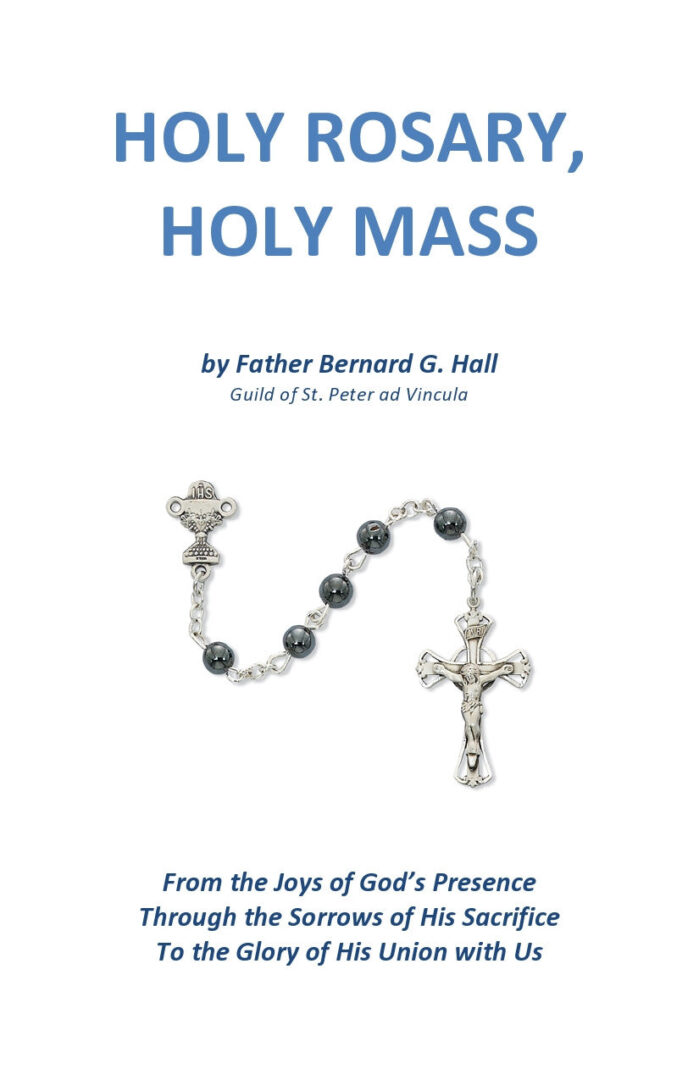
Select options This product has multiple variants. The options may be chosen on the product page
Et Reliqua
Sermons and Reflections from the Deanery
Support our apostolate



